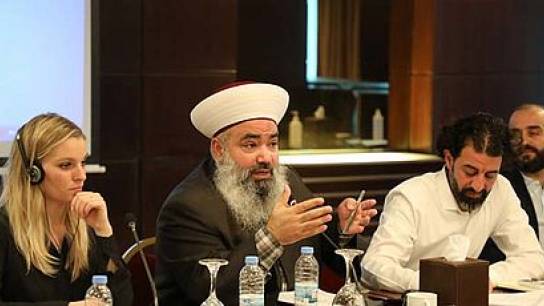
Beirut workshop explores Salafi-Jihadism trends and opportunities for conflict transformation
On 9 March 2020, the Berghof Foundation co-organised and facilitated a workshop in Beirut on recent trends in the development of Salafi-Jihadism in the MENA region and entry points for conflict transformation, in cooperation with Durham University and University of Edinburgh. The key aim of the workshop was to allow for an exchange of researchers and practitioners to share insights of recent research, discuss possible approaches for engagement and exchange on best practices.
One of its objectives was to compare experiences and lessons learned from practical approaches to strengthen community resilience – a key focus of the PAVE project. Panelists shared perspectives on the prevention of violent extremism (PVE) through youth engagement and prisoners’ reintegration work in Lebanese municipalities, and state-civil society complementarity. Panelists placed particular emphasis on the agency of communities leaders and religious institutions in raising awareness (by closely exchanging and engaging with their constituencies), supporting collective action and promoting open and tolerant attitudes towards members of communities with various social, religious and confessional backgrounds.
Dr. Véronique Dudouet, PAVE coordinator, provided an input on the key factors of community resilience based on previous research in the Western Balkans and introduced upcoming activities of the PAVE project in Lebanon, including multi-stakeholder workshops to inform the design and findings of the research. Representatives from other PAVE partner organisations also attended, including Open Think Tank (Iraq) and the Issam Fares Institute at the American University in Beirut.